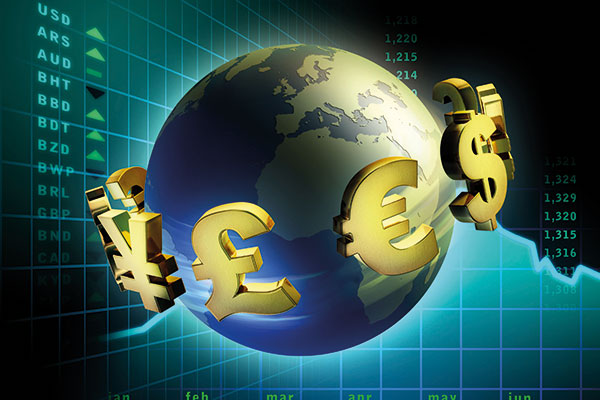Demand for gold ETFs hits record high: here’s why investors are buying
The amount invested into gold ETFs since the start of 2020 has already exceeded totals for any other cal…
10th June 2020 13:39
The amount invested into gold ETFs since the start of 2020 has already exceeded totals for any other calendar year. We explain why the precious metal is in high demand.

Gold remains highly prized during the coronavirus pandemic, with inflows into exchange-traded funds (ETFs) that track the precious metal hitting record levels in May.
The data, from The World Gold Council, also highlights the fact that the $33.7 billion invested into gold ETFs since the start of 2020 has already exceeded totals for any other calendar year. The previous annual record was set in 2016, with a total of $24 billion invested.
This record demand comes at a time when stock markets have been ticking upwards from 23 March onwards, indicating that some investors believe the rally will prove to be a false dawn and at some point another correction will materialise, particularly if there’s a second wave of coronavirus cases and lockdown restrictions are re-introduced.
As a result, the gold price has soared, in May rising to new eight-year highs against the US dollar. In addition, gold has set fresh record highs in all other currencies except the Japanese yen.
But it is not just uncertainty and the eye-catching performance of the gold price that are fuelling demand for the precious metal. The expectation of inflation returning is another key driver.
In short, inflation is expected to rise following the promise of governments and central banks to “do whatever it takes” through enormous monetary and fiscal stimulus packages. In theory, this should bode well for gold, which has historically provided a hedge against inflation.
The reason is that governments and central banks cannot simply print more gold, as they can currencies. As a result, its value is preserved. It is expected this attribute of the yellow metal will continue to be highly prized by investors, particularly in uncertain times.
Investor demand is reflected through The Royal Mint’s own gold-backed exchange traded commodity. The Royal Mint Physical Gold Securities ETC (RMAU) has attracted £272 million, just a few months since its launch in February this year.
Jatin Patel, head of wealth Management at The Royal Mint, says: “In the past three months, we’ve experienced a record demand for both our physical and digital precious metals solutions, including our gold coins and bars, with investors opting for the safe haven attributes of gold during these turbulent times.”
BullionVault, the precious metals marketplace, has also reported record demand from private investors for gold.
Adrian Ash, BullionVault’s director of research, notes: "While there's nothing so awful it can stop the stock market betting on a post-lockdown recovery which may never come, the number of people seeking stability and diversification with precious metals has never been greater.”
In addition, The Pure Gold Company has reported a 987% increase in people purchasing physical gold bars and coins over the past week. Josh Saul, chief executive officer of the gold investment firm says this has been driven by “growing concern that escalating protests around the world coupled with school and shop re-openings could spark a second wave of infections.”
He adds: “Investors are concerned that the equity markets and the wider economy could spiral downwards again, and have taken refuge in physical gold coins and bars which have risen in value by almost 17% this year.”
Overall, the consensus among investment commentators is that markets have potentially moved too soon, too fast. If such a scenario plays out, the gold price should continue to shine.
Rupert Thompson, chief investment officer at Kingswood, a wealth manager, says: “The economic backdrop is clearly improving and will continue to do so if a re-tightening of lockdowns is avoided. However, the big question is whether it will continue to improve as fast as the market seems to believe. Global equities are now up close to 40% from their lows, in what is the fastest recovery ever, and only 6% below their February high."
He adds: “Fear of missing out – and quite a few investors have missed out as the sharpness of this rally has caught most people by surprise – could yet carry equities higher, near-term. But, with markets now well ahead of the economic reality, a correction remains on the cards over coming months.”
This article was originally published in our sister magazine Money Observer, which ceased publication in August 2020.
These articles are provided for information purposes only. Occasionally, an opinion about whether to buy or sell a specific investment may be provided by third parties. The content is not intended to be a personal recommendation to buy or sell any financial instrument or product, or to adopt any investment strategy as it is not provided based on an assessment of your investing knowledge and experience, your financial situation or your investment objectives. The value of your investments, and the income derived from them, may go down as well as up. You may not get back all the money that you invest. The investments referred to in this article may not be suitable for all investors, and if in doubt, an investor should seek advice from a qualified investment adviser.
Full performance can be found on the company or index summary page on the interactive investor website. Simply click on the company's or index name highlighted in the article.
Editor's Picks